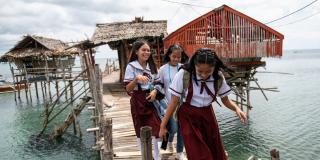
We’ve been working in the Philippines since 1964. For over 55 years, we’ve partnered with local organisations and government agencies to design and deliver projects to support the needs of communities across the country.
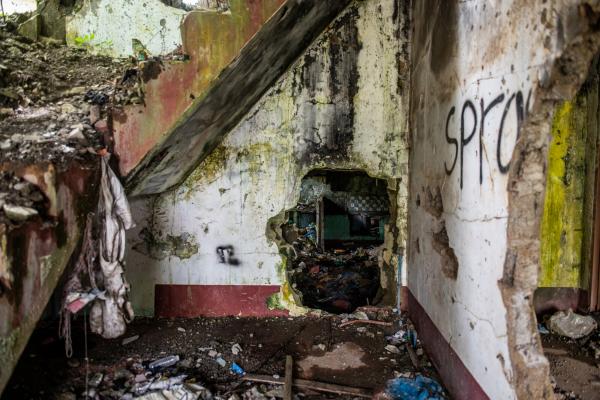
Although the Philippines has made significant strides in reducing poverty, inequality and deprivation persists. The country is also extremely vulnerable to the effects of climate change and natural disasters. Our work in the Philippines focuses on climate change adaptation, resilient livelihoods and youth engagement and supporting the women, peace and security agenda
Where we work
Most of our work is concentrated on the country’s southernmost major island, Mindanao, including the Bangsamoro Autonomous Region in Muslim Mindanao (BARMM).
This region has experienced decades of religious conflict and strife, which have hampered growth and development in the region. VSO also works in other areas of Mindanao including Sultan Naga Dimaporo, Zamboanga del Sur, Lanao del Norte.
Livelihood and climate resilience
With an average of 20 typhoons a year, rising sea levels and ocean acidification, the Philippines is often cited as one of the countries most at risk from the climate crisis.
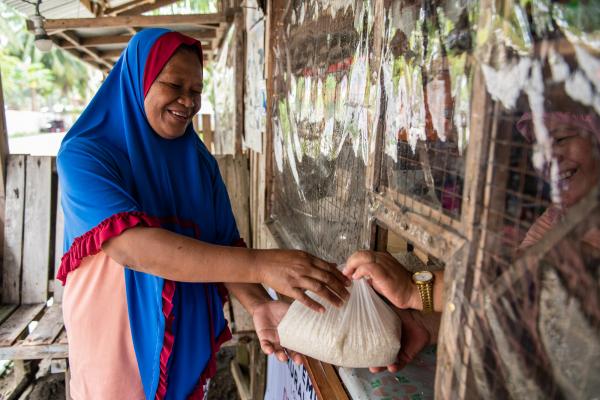
Being an island nation, the Philippines relies heavily on fish for food. In fact, it's the 8th biggest fishing nation in the world. However, extreme weather is threatening marine life and coral reefs, an important food source for fish.
In partnership with LAFCCOD, VSO has set up a marine protected area in Lanao Del Norte, Mindanao. This helps safeguard coral reefs and sea life from destructive maritime activities like dynamite fishing.
VSO is also helping communities that rely heavily on fishing diversify their income streams through rice retailing and biofertilizer initiatives. Women come together to concoct organic biofertilizer made from molasses, fish waste, water and shredded plant waste. This is then sold for a profit.
VSO is supporting ecosystems by transforming two areas into ecotourism sanctuaries. Through a thicket of mangrove trees, tourists pay to saunter along a boardwalk and soak in bountiful nature and wildlife.
The local community benefits from the income this generates. Mangrove planting activities take place at the ecosanctuaries, helping to protect the communities against typhoons.
Watch: The Humble Mangrove Tree
Did you know that mangroves, a mangled tropical wetland tree, are underrated climate change superheroes? These remarkable trees protect coasts, ecosystems, homes and livelihoods, yet they are currently under threat. Check out our video which tells the impressive story of how VSO volunteers in the Philippines are harnessing the hidden power of mangroves, nature and community to create real sustainable change for families.
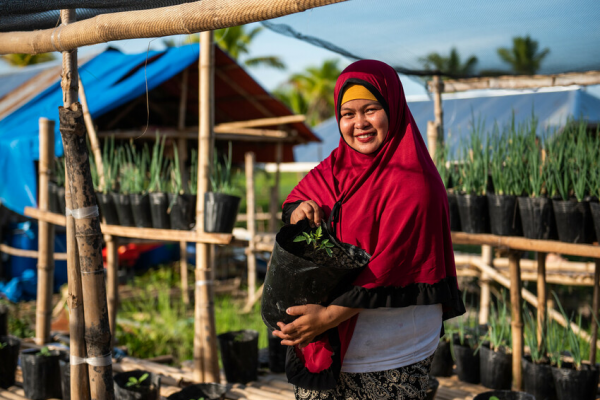
Transforming fragilities
Mindanao has long had a history of conflict, with communists, Muslim separatists and clan militias all operating in the area. To this day, the region remains a hotbed for militant activities and religious insurgencies.
In 2017, the Marawi siege between ISIS-affiliated organizations and the Philippine military forcibly displaced 98 percent of the total population of the city. The Marawi siege was the longest battle in modern-day Filipino warfare, and many of its former residents are still marooned outside the city.
In the aftermath of the siege, VSO provided dressmaking training to women who had escaped ISIS. This has given them a source of income as their businesses were destroyed in the war.
VSO’s work also contributes to the normalisation track of the Bangsamoro peace process. It supports former Moro Islamic Liberation Front (MILF) combatants and their families to access livelihood opportunities, build peaceful and resilient communities and respond to the challenges of environmental degradation. Despite the MILF forging a peace deal with the government in 2014, the peace remains fragile.
VSO is supporting marginalised women through a BARMM study. This investigates the situation of women in three of six major MILF camps in Mindanao, to bring forward gender, peace, and security issues towards sustainable peace.
Active Citizenship Through Inclusive Volunteering and Empowerment (ACTIVE)
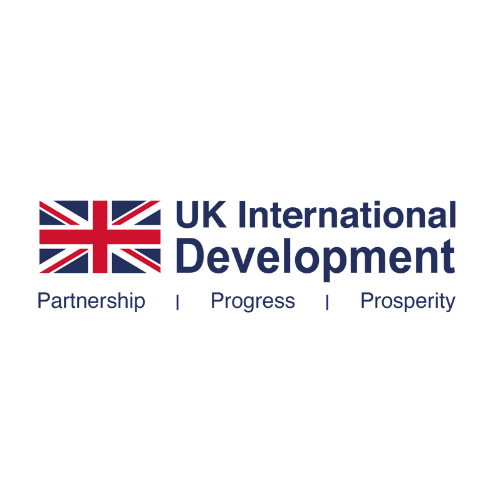
VSO’s ACTIVE project in the Philippines is funded by FCDO. ACTIVE aims to promote civic engagement and enable local people to volunteer and take collective actions in addressing issues which are important to them.
In BARMM, VSO’s programme aims to contribute to the normalization process and the Camp Transformation Plan.
VSO is implementing programmes in three MILF camps (Camp Rajamudah, Camp Darapanan and Camp Badre) through the active participation of marginalised individuals and groups (ex-combatants, women, youth) who are supported to take actions through agroecology initiatives, climate change adaptation, social cohesion, and social accountability actions.
Our partners
VSO works with a number of partners to implement ACTIVE, including UnYPhil-Women and Lanao Aquatic and Marine Fisheries Center for Community Development (LAFCCOD).
VSO also works with the Philippine National Volunteer Service Coordinating Agency (PNVSCA) to advocate for volunteering for development as a strategy for delivering transformational change.
Contact us
If you are interested in supporting our work, or if you have another query, get in touch:
Address: Block 01 Lot 21 #117, 4th A Street Ecoland Subdivision Phase-1, Matina Davao City, Davao del Sur 8000.
Tel: +63 960-501-6438
Email: lowell.traiso@vsoint.org
Stories from the Philippines
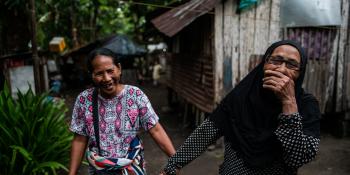
Friends forever: crossing the religious divide in the Philippines
Two women in the Philippines have forged an unlikely friendship, despite their religious differences, fostering unity in a once-divided community.
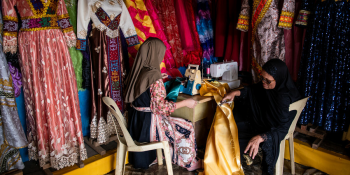
From destruction to dressmaking - the story of two inspiring women
Every minute, 20 people are forced to leave everything behind to escape conflict or persecution. But they aren’t just crossing international borders to seek refuge in other countries. For some people, that isn’t an option.
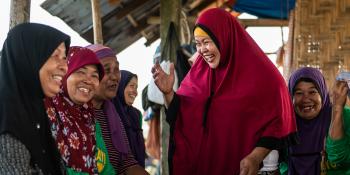
A quiet revolution: Women rise above traditions in conflict-scarred communities
In a secluded marshland in the southern Philippines, women are emerging from the solitude and loneliness of their homes, reclaiming their place in the community and learning new skills – and it’s all thanks to your support.
